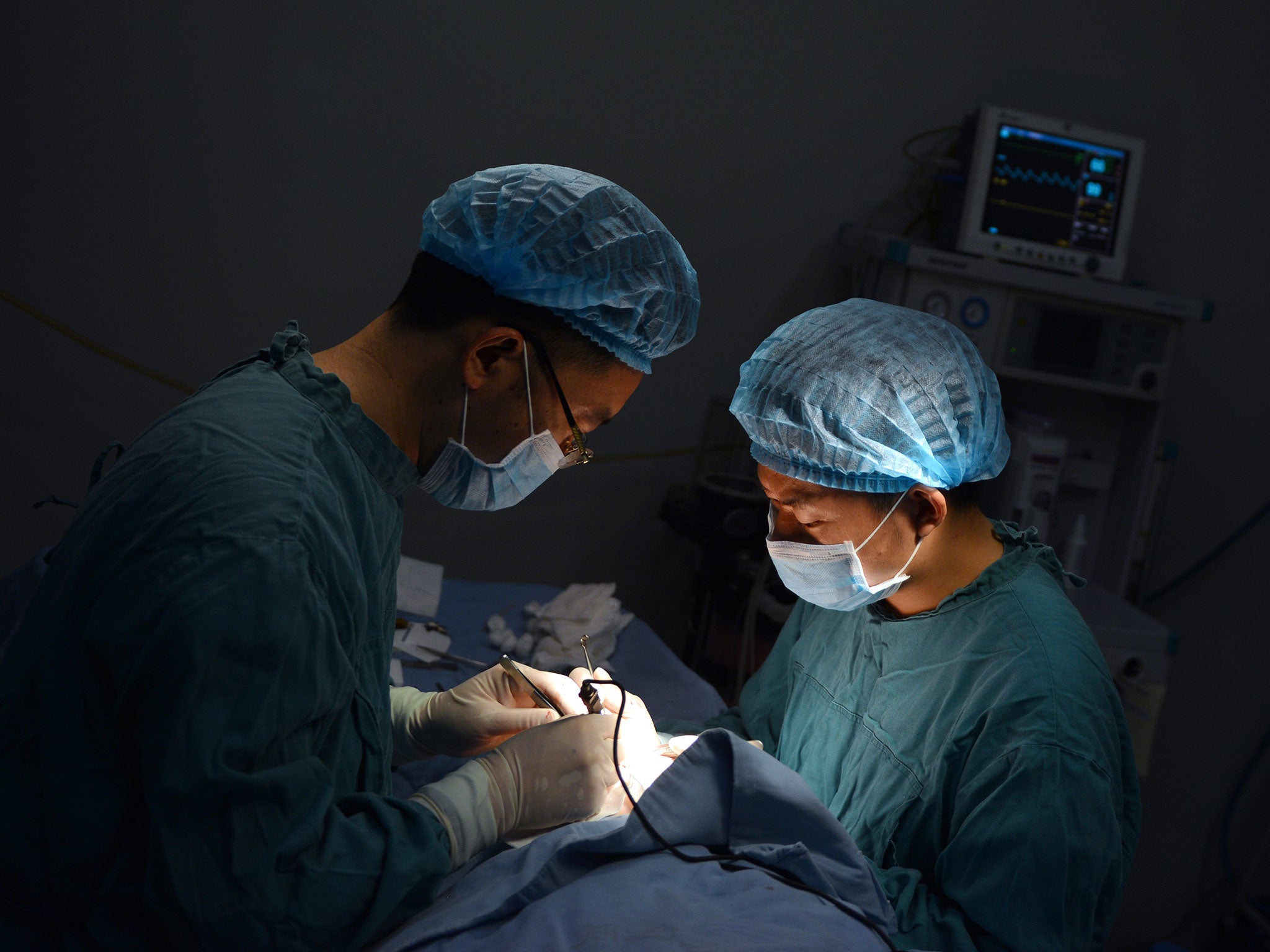Plastic surgeons must give patients chance to change mind, says General Medical Council
Medics will also be encouraged to be more open and honest about the risks involved

Cosmetic procedure patients should be given a cooling-off period before going under the knife, according to the latest guidance by the General Medical Council (GMC).
UK doctors have been encouraged to allow surgical and non-surgical patients “enough time and information” to change their minds about whether to proceed with treatment.
Medics will also be encouraged to be more open and honest about the risks involved in treatment with patients, and to take particular care when working with children or young people.
The GMC is now consulting with the public and doctors about this and other proposals to make cosmetic procedures safer.
Professor Terence Stephenson, GMC chairman, said: “Cosmetic practice is a huge and expanding area of medicine and patients, some of whom are vulnerable, do need to be better protected.
“We are producing this guidance because of the particular risks around this area of medicine.
“We are clear that doctors must not pressure patients to make rushed decisions they may end up regretting and they must give them enough information so they can make an informed choice.”
To further improve patient safety, the GMC is also working closely with the Royal College of Surgeons of England and others to publish information about which surgeons have the right skills to carry out cosmetic surgery. This would allow patients to check doctors’ qualifications on the GMC’s medical register.
Prof Stephenson added: “It is vital patients should be able to tell whether a doctor is competent to carry out these interventions and we have called for new legal powers to enable us to do this.”
Professor Sir Bruce Keogh, NHS England’s medical director, said: “Those having cosmetic interventions – either surgical, such as face-lifts, tummy tucks or breast implants or non-surgical, such as dermal fillers and Botox – take their safety as a given and assume guidance in place to protect them.
“This consultation is a step in the right direction to tighten standards and protect people from potential risks.”
David Ward, consultant plastic surgeon and vice president of the Royal College of Surgeons, said: “We welcome this draft guidance from the GMC because it is explicit that doctors should work within the limits of their competence when carrying out any type of cosmetic procedure. It also covers important ethical issues around patient consent, continuity of care and responsible marketing.
“Only surgeons with the appropriate training and experience should be allowed to perform cosmetic surgery. This is why we are producing new standards of training and a certification system for surgeons wishing to perform cosmetic surgery.
“We also plan to publish additional guidance, specifically for cosmetic surgery, which will accompany the GMC’s document.”
The GMC’s consultation will run until September and will be available on the GMC’s website. The final guidance is expected to be published in early 2016.
Join our commenting forum
Join thought-provoking conversations, follow other Independent readers and see their replies
Comments